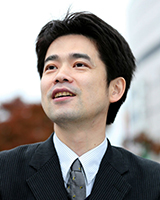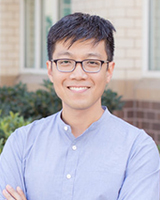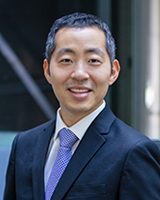

Prejudice, Discrimination, and Stereotypes in Northeast Asia
Chair : Fumiaki Taka (Kanagawa University, Japan)
fumiakitaka@gmail.com
| The countries located in Northeast Asia share many similarities in their historical backgrounds, and they continue to interact closely with each other. At the same time, however, they also face conflicts over many aspects, such as historical perceptions, territorial disputes, and economic competition. Reflecting this situation, the beliefs and attitudes held by each nationality about others are often negative, and discrimination against people from the other countries is sometimes practiced within the country. In this symposium, we will discuss the current situation and underlying factors of prejudice, discrimination, and stereotyping in the countries in this region. In addition to understanding these topics in the context of this particular region, we will also attempt to understand these topics in light of the modern world in the information age and basic human emotion such as disgust sensitivity. |
|
| Individual Presentations and Speakers | |
|---|---|
 |
Prejudice, Discrimination, and Stereotypes by Japanese People against Korean and Chinese People Fumiaki Taka (Kanagawa University, Japan) |
 |
Racism and News on the Internet: An Example of Japanese Online Television Masanori Takano (Cyberagent Inc., Japan) |
 |
Disgust Sensitivity and Public Attitudes toward Immigration in South Korea Shang E. Ha (Sogang University, Republic of Korea) |

Current Advances in Research on Apology, Forgiveness, and Reconciliation
Chair : Keiko Ishii (Nagoya University, Japan)
ishiik@i.nagoya-u.ac.jp
| Apologies are considered to be an effective strategy in the resolution of conflict, which elicit forgiveness and foster reconciliation. In addition to investigations on relationships among apology, forgiveness, and reconciliation at the interpersonal level, evidence on the relationships at the intergroup level has been accumulated, which suggests some discrepancies in the assumptions about these constructs between interpersonal and intergroup contexts. In this symposium, we plan to introduce current findings of a variety of empirical studies which contribute to the advancement of knowledge of relationships among apology, forgiveness, and reconciliation. | |
| Individual Presentations and Speakers | |
|---|---|
 |
Embodied Remorse: Does Bowing, Kneeling or Crying Enhance the Effects of Apologies on Forgiveness? Matthew J. Hornsey (University of Queensland, Australia) |
 |
Continuity and Discontinuity between Interpersonal and International Apologies Yohsuke Ohtsubo (University of Tokyo, Japan) |
 |
Apologies as the Victim Group Members Want from the Perpetrator Group in a Historical Injustice Sang Hee Park (Chungbuk National University, Republic of Korea) |
 |
Group-based Emotion and Reconciliation in the Jakarta’s 2017 Electoral Conflict Arie Suciyana Sriyanto (Universitas Mercu Buana, Indonesia) |

The Science of Wisdom in the Face of World's Social Challenges
Chair : Igor Grossmann (University of Waterloo, Canada)
igrossma@uwaterloo.ca
| Massive-scale floods and fires, geopolitical tensions within and across countries, and a pandemic—the world appears once again at the brink of instability and uncertainty. Social critics suggest that such times call for wisdom. Yet, what is wisdom and how does one study it? A recently advanced common position on wisdom among psychological scientists underscores the centrality of meta-cognitive features (e.g., recognition of one’s fallibility and change, open-mindedness to broader context and diverse viewpoints) and moral aspirations. Study of such fundamentals has revealed key advances for the study of wisdom in the context of intergroup conflicts, goal pursuit, and emotion regulation, showing unique contribution of wisdom for each of these domains. The present symposium presents cutting-edge findings across these fields. Chao and colleagues will describe how wisdom in reflections on acute intergroup conflicts relate to reduced attitude polarization and charitable intentions and behavior. Chen will focus on the role of wisdom-related metacognition in a form of strategic mindsets for effective goal pursuit. Koetke and Schumann will discuss the unique role of intellectual humility – a central feature of wisdom – for combating COVID-related misinformation over the course of the pandemic. Finally, Grossmann will discuss recent advances on the trainability of wisdom characteristics in the context of interpersonal conflicts. | |
| Individual Presentations and Speakers | |
|---|---|
 |
Wisdom and Balance in Polarized Societal Conflicts Melody M. Chao (The Hong Kong University of Science and Technology, Hong Kong) |
 |
A Strategic Mindset Makes People Metacognitively Wiser Patricia Chen (National University of Singapore, Singapore) |
 |
Intellectual Humility Predicts Scrutiny of COVID-19 Misinformation Jonah Koetke (University of Pittsburgh, USA) |
 |
Training for Wisdom: The Illeist Diary Method Igor Grossmann (University of Waterloo, Canada) |

The Environments We Live in Fundamentally Shape Our Psychology
Chair : Oliver Sng (University of California, Irvine, U.S.)
olisng@uci.edu
| If you look at your surroundings right now, they are likely to have changed significantly in the past year. The presence of crowds, the prevalence of disease, the availability of resources: all are aspects of our environments that we may not have paid much attention to in the past, but that have come to the forefront of our psychology in the pandemic. This symposium draws upon existing theory from evolutionary and ecological perspectives to explore diverse questions: What are the origins of culture? What is the purpose and meaning of happiness? What is more important: having money or having people one can rely on? Four speakers attempt to provide novel answers to each of these questions by considering the role of the broader environments that we live in—our ecologies. | |
| Individual Presentations and Speakers | |
|---|---|
 |
The Behavioral Ecology of Cultural Psychological Variation Oliver Sng (University of California, Irvine, U.S.) |
 |
Nature is Larger than Happiness: Social Ecological Views Expand the Scientific Scope of Happiness Eunkook M. Suh (Yonsei University, Republic of Korea) |
 |
The Ecology of Happiness: Money Matters More in Pathogen-prevalent Areas Minyoung Choi (University of California, Irvine, U.S.) |
 |
The Role of Childhood Socioeconomic Status on Hedonic and Eudaimonic Happiness Beliefs: A Life History Approach Jinseok P. Kim (Yonsei University, Republic of Korea) |

From Conflict to Collaboration: Investigations on Environmental Sustainability
Chair : Kimin Eom (Singapore Management University, Singapore)
kimineom@smu.edu.sg
| Environmental problems, such as climate change and pollution, are serious threats facing humanity today. Addressing these threats requires an unprecedented level of cooperation across the world. However, such change is challenging to make due to a number of barriers that impede environmental action. Importantly, environmental issues often involve conflicts of interest between ingroup vs. outgroup and present vs. future. Moreover, the borderless nature makes it difficult to identify responsibility for environmental issues. This symposium presents cutting-edge psychological research from international scholars on how people respond to the aforementioned conflicts related to environmental issues and what makes people have a collaborative sense of responsibility for environmental problems and further engage in pro-environmental action. | |
| Individual Presentations and Speakers | |
|---|---|
 |
Understanding Collective Responsibility in the Issue of Particulate Matter in Korea Min Suh (University of Massachusetts Amherst, USA) |
 |
Understanding Public Engagement with Climate Change through the Lens of National Interest Kim-Pong Tam (The Hong Kong University of Science and Technology, Hong Kong) |
 |
Religion, Environmental Guilt, and Pro-environmental Action Kimin Eom (Singapore Management University, Singapore) |
 |
Environmental Sustainability as a Mirage of Time - Confidence in Government Moderates Cross-cultural Differences in Present Bias and Pro-environmentalism Angela Leung (Singapore Management University, Singapore) |

Social Psychological and Cultural Factors in Maintaining Mental Health in the Time of the COVID-19
Chair : Wendy Li (James Cook University, Australia)
wendy.li@jcu.edu.au
| COVID-19 has created significant challenges and uncertainties that have substantial psychological and social effects on human beings. Research has highlighted the role social psychology plays in this unprecedented time. Associate Professor Wendy Li of James Cook University, Australia, and her teams employed the terror management theory (TMT) and meaning maintenance model (MMM) to explore the impact of social psychological and cultural factors that contribute to mental health during the time of the COVID-19 pandemic. This symposium consists of three presentations: 1) Novelty seeking and mental health in Chinese university students before, during, and after the COVID-19 pandemic lockdown: A longitudinal study; 2) Filial piety as a cultural buffer for mental health in Chinese people during the COVID-19 pandemic; and 3) Relational responses to COVID-19: Filial piety as a cultural protective factor for psychological wellbeing among Chinese college students. The chair of the symposium is Associate Professor Wendy Li; The presenters include: Dr Daniel Miller of James Cook University, Australia; Associate Professor Yahong Li of South Central University for Nationalities, Wuhan, China; and Mr Christopher Rouen of James Cook University, Australia. | |
| Individual Presentations and Speakers | |
|---|---|
 |
Novelty Seeking and Mental Health in Chinese University Students before, during, and after the COVID-19 Pandemic Lockdown: A Longitudinal Study Daniel Miller (James Cook University, Australia) |
 |
Filial Piety as a Cultural Buffer for Mental Health in Chinese People during the COVID-19 Pandemic Yahong Li (South Central University for Nationalities, China) |
 |
Relational Responses to COVID-19: Filial Piety as a Cultural Protective Factor for Psychological Wellbeing among Chinese College Students Christopher Rouen (James Cook University, Australia) |

Psychology and Law in East Asia
Chair : Yimoon Choi (Korean National Police University, Republic of Korea)
yimoon@police.ac.kr
| This symposium explores the intersection of psychology and law, especially examines how legal and extra-legal factors affect decisions of the criminal justice system and criminal trials. The symposium also focuses on the investigation process of offenders and victims to suggest best investigative practice. The symposium will conclude with a discussion lead by experts on psychology and law. Research results may aid in the advancement of best practice guidelines within the criminal justice system and legal decision making. |
|
| Individual Presentations and Speakers | |
|---|---|
 |
The Other-race Bias in Facial Identification Jungwon Lee (Hallym University, Republic of Korea) |
 |
Attempt to Solve Social Problems using Crime Information Analysis:Community Crime Prevention, Insurance Fraud, and Customer Harassment Masayuki Kiriu (Toyo University, Japan) |
 |
Pretending to Be Better than They Are? Emotional Manipulation in Imprisoned Fraudsters Zhuo Zhang (China University of Political Science and Law, China) |
 |
Effects of Investigative Interviewing Containing Narrative Practices Phases on Witness with Intellectual Disabilities Misun Yi (Dongyang University, Republic of Korea) |

Living through COVID-19: Conflicts and Adjustment
Chair : Eunsoo Choi (Korea University, Republic of Korea)
taysoo@korea.ac.kr
| People around the world have implemented diverse behavioral regulations to fight the COVID-19 pandemic. As the containment of the disease requires effortful measures ranging from social distancing and mask-wearing at the individual level to border closure at the national level, different types of conflicts have inevitably arisen. As individuals are required to sacrifice their autonomy in social and economic activities, a reconciliation between self-interest and other-interest poses a challenge to society. In addition, as the pandemic heightens out-group awareness, hatred and discrimination against out-group members have become a source of societal conflict more than in the pre-COVID-19 era. The present symposium provides four research projects that examine how these conflicts and challenges are better understood by considering the cultural values and orientations. Dr. Yukiko Uchida (Kyoto University) will focus on how the Japanese have collectively regulated their own and others’ preventive behaviors during the pandemic. The role of interdependence values such as group-level reputation concern and behavioral adjustment motivation in promoting preventive behaviors will be demonstrated. Moreover, how such behavioral regulation of members of Japanese society is related to their attitude toward Japanese leaders’ slow decision-making process will be discussed. Dr. Matt Gobel (University of Exeter) extends related research to a multinational study across three East Asian cultures (Japan, Korea, and Hong Kong) and two Western cultures (UK, US). Specifically, the study focuses on the effects of governmental influence in each culture on citizens’ compliance with health-protecting behaviors for collective benefit. Two possible pathways have been identified: governments’ direct influence through incentivizing health-protecting behaviors, and indirect influence through meting out punishment to non-complying citizens. Analyzing self-reported responses from 2,000 adults from the five countries, the results indicated that only the governments’ indirect influence on citizens’ health-protecting behaviors was significant, and this effect was stronger in East Asian than in Western cultures. These findings speak to the crucial role that governments play for creating social assurance, which seems particularly important in East Asian cultures. Dr. Joonha Park (NUCB Business School) investigates attitudes towards cultural diversity and foreign migrants during the pandemic with a particular focus on human values as potential boundary conditions. Analyzing more than 10,000 participants across three Asian countries (China, Japan, Korea), the results showed that openness to change (vs. conservation) and self-transcendence (vs. self-enhancement) tend to have positive effects on outgroup tolerance and acceptance of cultural diversity. Culture-specific patterns for different boundary conditions will be examined in more detail. Finally, Dr. Alex English will talk about how Chinese, as the target of discrimination and hatred during the COVID-19, coped emotionally in response to intergroup threat. In particular, by utilizing two different samples of Chinese, Chinese living in China and Chinese living outside China, the present analysis will provide insight into how collective national identity facilitate collective affective acculturation. | |
| Individual Presentations and Speakers | |
|---|---|
 |
Interdependent Behavioral Adjustment in Japanese COVID-19 Situation Yukiko Uchida (Kyoto University, Japan) |
 |
The Role of East Asian and Western Governments during the Covid-19 Pandemic: Matthias S. Gobel (University of Exeter, UK) |
 |
Values, Trust, Beliefs about Ingroup Resilience, and Outgroup Attitudes in Times of Crisis Joonha Park (NUCB Business School, Japan) |
 |
How Anger Transcends the Diaspora: The Mediating Role of National Identity among Chinese during COVID Alexander Scott English (Zhejiang University, China) |